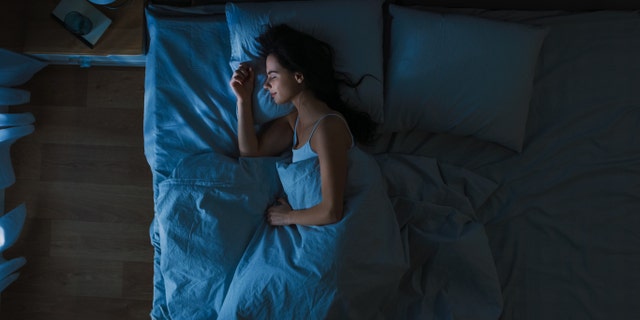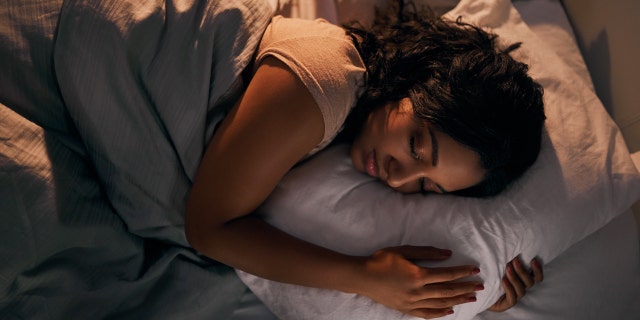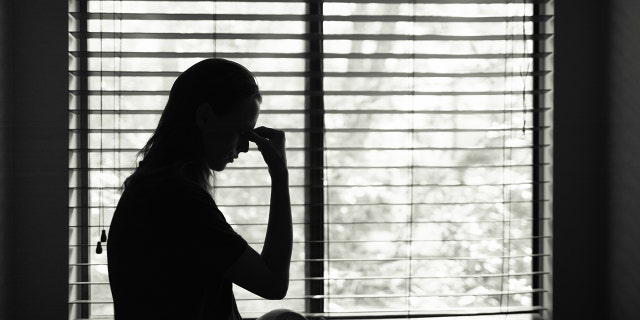Turning off all lights and drawing the curtains before hitting the bed may help protect your health, according to a recent study out of Northwestern University that was published in the Proceedings of the National Academy of Sciences.
“These findings are important particularly for those living in modern societies where exposure to indoor and outdoor nighttime light is increasingly widespread,” senior study author Dr. Phyllis Zee said in the release.

Woman sleeping in her bedroom at night.
(iStock)
Researchers found exposure even to moderate ambient light while sleeping, compared to sleeping in a dimly lit room, is harmful to your heart-health” target=”_blank”>cardiovascular< demonstrate that just a single night of exposure to moderate room lighting during sleep can impair glucose and cardiovascular regulation, which are risk factors for heart disease, diabetes and metabolic syndrome,” Zee, who is also the chief of sleep medicine at Northwestern University Feinberg School of Medicine, said in the release. The Northwestern Medicine physician also said, “It’s important for people to avoid or minimize the amount of light exposure during sleep.”
The authors of the study said up to 40 percent of individuals sleep with a light on in the bedroom or keep the tv” target=”_blank”>television<
The researchers tested the effect of sleeping with 100 lux (moderate light) compared to 3 lux (dim light) in participants over a single night. Zee’s research team discovered that moderate light exposure while sleeping caused the body to go into a higher alert state. The researchers explained in the release that this heightened state caused an increase in heart rate and blood flow in the participants’ vessels and increased the force with which the heart contracts.

Sleep is a key part of a healthy life
(iStock)
According to the study, evidence has shown that exposure to light during the daytime hours, increases an individual’s heart rate by activating the sympathetic nervous system, contributing to a heightened awareness. The sympathetic nervous-system-health” target=”_blank”>nervous system<
While the sympathetic nervous system takes over during the day, the parasympathetic nervous system typically takes over at night, allowing a person’s body to rest and restore, according to the study release. However, the researchers said this does not happen with those who slept in a lighted room.
The investigators also found insulin resistance occurred in the lighted room participants. This is where a person cannot properly utilize glucose from their blood for energy because the cells in the muscles, liver and fat do not respond to insulin appropriately. The pancreas then must make more insulin and over time and the individual’s blood sugar goes up, the release said.

Stressed woman.
(iStock)
“In addition to sleep, nutrition and exercise, light exposure during the daytime is an important factor for health, but during the night we show that even modest intensity of light can impair measures of heart and endocrine” target=”_blank”>endocrine<
In addition, if you are wondering if your room is too light, Zee offered this advice, “If you’re able to see things really well, it’s probably too light.”
 Iktodaypk Latest international news, sport and comment
Iktodaypk Latest international news, sport and comment






